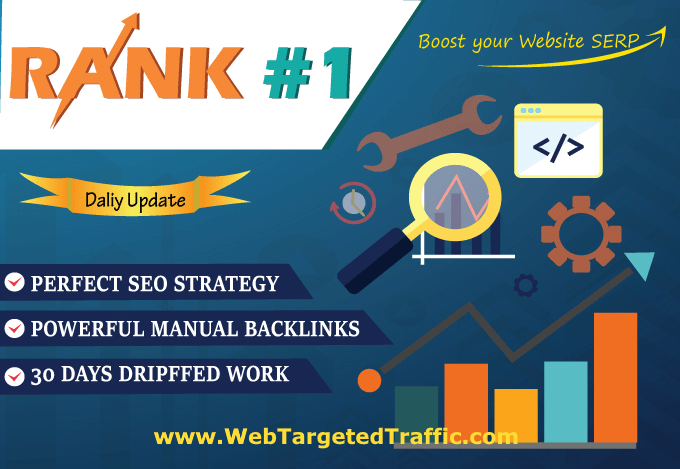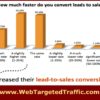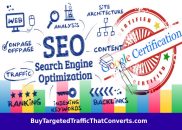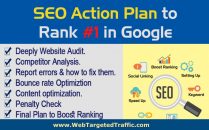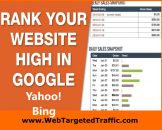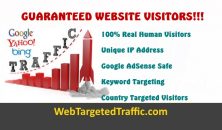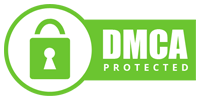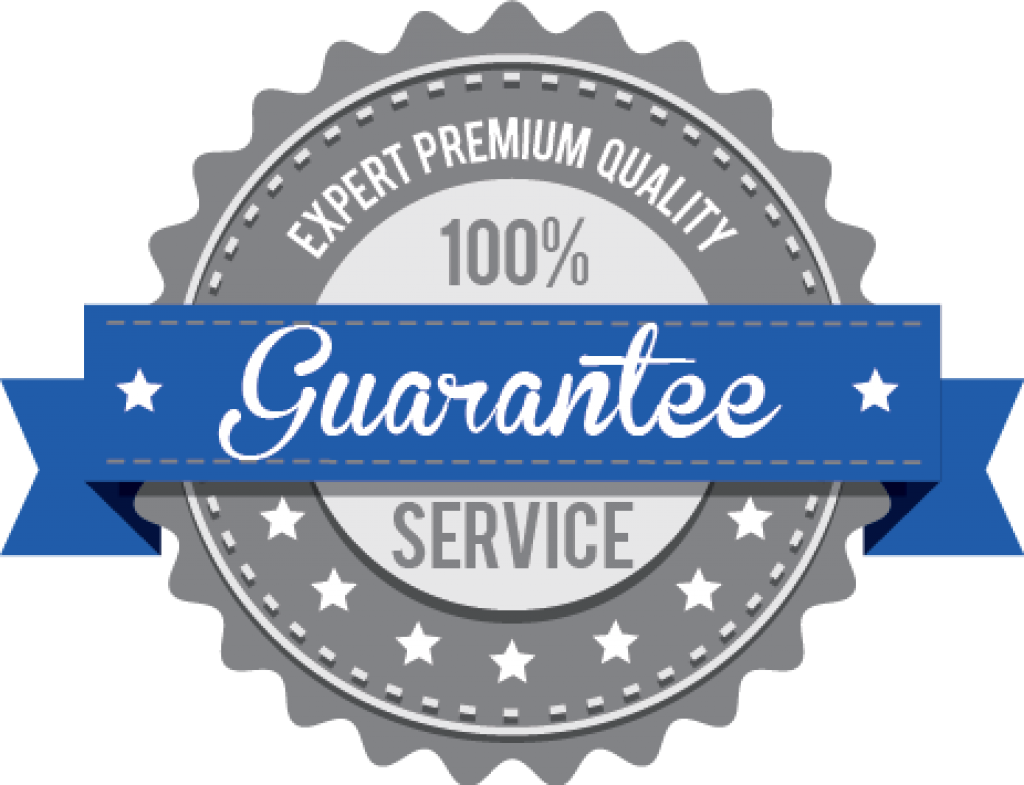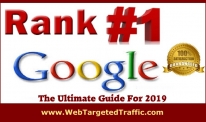
Get Your Business on Google Page One: The Ultimate Guide for Beginners
Table of Contents
Is Your Company Website On
The First Page Of Google?
If Your Website Is Not On Page 1 of Google,
For Your Marketing Keyword,
Your Missing Sales and Losing Money!
You can only grow your business in three way
• Increase the number of prospects to your business.
• Increase the conversion rate of prospects to customers and
then to clients.
• Increase the total value of each and every customer and client.
There are a few different areas of the search results you can rank #1 for: PPC ads at the top, organic listings at the bottom, and local listings in the middle. That means you have three separate opportunities to rank your content on page one. Blue Corona’s philosophy and strategy to get that spot on the first page and outrank competitors starts by breaking it down into solving three main questions, each one aimed at a different part of the search results page:
- How do you get your pay per click (PPC) ads on page one of Google?
- How do you use search engine optimization (SEO) to get page one real estate?
- How can local search engine optimization (LSEO) help get more page one listings?
Below you’ll find the answers to these questions along with some on-the-ground tips to help you claim that coveted number one spot on the first page of Google.
Editor’s Note: We started writing this post in 2013. Google has changed since then, so we’ve updated it—a lot—and will continue to do so to reflect the most recent statistics and information on getting your business on the first page of Google search results. Enjoy!
What Goes Into Google’s Ranking Algorithm
Before we dive in, you should know what the ranking factors are that Google looks for:
“You want the answer, not billions of webpages, so Google ranking systems sort through the hundreds of billions of webpages in our Search index to give you useful and relevant results in a fraction of a second.
These ranking systems are made up of a series of algorithms that analyze what it is you are looking for and what information to return to you. And as we’ve evolved Search to make it more useful, we’ve refined our algorithms to assess your searches and the results in finer detail to make our services work better for you.” – Google
There are more than 200 actual ranking signals, but here’s what you should focus on if you want to get your business on page one of Google’s search results:
- Secured sites (HTTPS vs. HTTP)
- Websites that are mobile-friendly
- Schema markup
- Webpage content quality
- Webpage content length
- Page speed
- Social signals
- Quality backlinks
- Optimized images
- Domain age
How to Get On Page One of Google for Paid Search Campaigns
While you might think there would be an office rivalry between the content marketing and PPC teams, spoiler alert: there isn’t. They actually work hand-in-hand, and I highly recommend you invest in both.
However, if you want to get on the first page of Google tomorrow, investing in paid search is the way to go. SEO campaigns can take anywhere from a few weeks to several months to deliver results, so you’re unlikely to get more organic (non-paid) traffic, leads, and sales early in your investment.
Pay-per-click ads have always been a cost-effective way to get more leads and sales from the Web.
Most marketers and advertisers have accepted that many people have “ad blindness” towards PPC listings—meaning they purposely do not click on paid ads. But if you look at the search engine results page, the first half is all ads!
If you’re not investing in PPC, you’re basically giving those clicks to your competitors.
How to Improve Your Organic Google Rankings with SEO and Get Your Website to Appear Higher in Search Engines
We’ve seen that the paid results claim the first half of the page, but if you want to rank higher in search engines for free, you need to rely on SEO. To be exact, you need to be in one of the first three organic positions.
Why?
Take a look at the graphic above. That’s the percentage of users that click on the first, second, third, fourth, and fifth positions. A whopping 55 percent of users click on the first three entries.
Getting in those spots, especially if you’re a new business, is tough. The best way to get in one of those top spots is by adding content to your website. High-quality content increases your rankings and also creates a better user experience for your customers. In addition, the more quality information you have on your site, the more likely others are to reference it. When other people link and reference your website, the search engines interpret your site as more authoritative and display it more prominently in search engine results.
Unfortunately for you, there’s much more to SEO than just adding content to your website. From a technical standpoint, you also need to make sure the search engines can easily crawl, understand, and index your website (read more here). This involves things like improving your site speed, using a search-engine friendly site navigation menu, creating a well-structured XML sitemap, building a responsive site for mobile and tablet users, and more.
A huge part of dominating search results is to focus on more than one service or key phrase. At Blue Corona, we always recommend you try to get as many listings on the first page as possible (what we call “maximizing your online real estate.”)
Get Your Company on Page One
How to Get More Local Leads from Local SEO
When you Google something like “plumber,” “ac repair,” “best damn digital marketing company ever,” you’ve probably noticed that Google uses your location data to display nearby businesses. Obviously, if you own a local business, you want to get in those local listings (the “local-pack”) in-between the PPC ads and organic listings.
To show up in the local listings on the first page of Google, you need to optimize your NAP (name, address, phone number) citations across the Web. The more local citations you can build with consistent NAP information, the better.
Other Strategies for Getting More First Page Results on Google
While the paid listings, organic listings, and local listings are the main three SEM strategies for getting your business on the first page of Google, I have a few other (arguably) under-utilized tactics for getting even more listings on the first page (especially following Google’s decision to limit domain crowding):
Microsites
A lot of companies—especially those with multiple business lines—opt to have more than one website. These companies tend to have a main or primary domain complemented by one or more microsites.
A microsite (sometimes called a minisite) is a website used to supplement a company or organization’s primary domain. More often than not, the microsite will have a URL distinct of the primary domain and has its own unique design and navigation.
Microsites can help you target different buyer personas, appear more relevant and authoritative, as well as get multiple listings in organic search results.
You can read more about the benefits of microsites in one of our older posts, “Should I Build Multiple Websites?”.
Videos
To improve its own customers’ user experience, Google likes to display a wide variety of media in its search results—including videos. Take a look at the organic listings below–a video hold the second spot. A video is 60 percent more likely to get ranked in a search result than a landing page on the same topic.
Having a YouTube channel and embedding videos onto your site are great ways to increase the chances that you’ll show up in related search results.
Using YouTube ads are also a great way to bypass organic and go straight for paid results at a low cost per video view.
Social Sites
You already know about social sites like Facebook, Twitter, and LinkedIn. But depending on your industry, there are other social sites you should consider joining to increase your chances of showing up on the first page of Google. Pinterest, Houzz, Tumblr, and Yelp are all good examples.
Images
Optimizing the images on your site can help you get on the first page of Google when it displays image results….
The way Google and other search engines display websites is this: Google has automated computer systems working around the clock that randomly visit websites all over the Internet, take snapshots of each page, and file them away in a massive database.
As part of taking a snapshot of each web page, Google’s system reads every word and other content on a web page (like photos, videos, audio files, etc) in order to determine the specific subject of the page. Google uses this collected data to determine which web pages to show, and in what order, for a particular keyword search.
In other words, Google’s computer algorithms dynamically determine which web page on the Internet is the most relevant for a specific key word or key phrase and displays it first. It then displays the second most relevant page, and so on. The resulting list of web pages is known as a Search Engine Results Page (SERP).
Are you wondering why YOUR website isn’t ranking high on Google? Claim your FREE SEO Audit now to get specific reasons YOUR website is not ranking. We’ll show you exactly what to fix. In just a few minutes, you’ll have the full report sent to your email. Click here to claim yours now.
A SERP can be made up of several sections:
- The top section usually consists of 3 or 4 paid text ads that relate to the keyword used to conduct the search
- If Google thinks the user is looking for a local business nearby, it will add a section below the paid ads called the Local Map Pack
- The main section in the middle consists of “organic” (non-paid) listing of web pages that are relevant to the keyword used to conduct the search
How Do I Get My Site On Google?
First, you need to make sure your website has been indexed by Google. To find out if it is, type site:yourdomain.com into the Google search box, replacing yourdomain.com with your actual domain name. If you see a listing of your website’s pages, then Google has already indexed your site and will continue to visit it occasionally to check for updates. If your website is not listed, submit it here: http://www.google.com/addurl. It will take 1 or 2 weeks for Google to visit and index your website.
Secondly, remember, Google will only display web pages that are relevant to the keyword being searched. The first step is to make sure your web page’s text is related to the keyword in question. If it’s not, chances are Google won’t show it.
Third, just because your website does not show up on the first page, doesn’t mean it is not showing up at all. Go to the bottom of the results page and click “Next” for page 2 and so on. Your website may be on page 2, page 82 or somewhere in between.
Okay, My Website Is On Google, But It’s On Page 41! How Do I Get It To Show On Page 1?
Ah! You’ve asked the million dollar question. An entire industry has been built to answer this question and millions of dollars are spent each year to accomplish this! My first question for you is, “How much money do you have?” Just kidding, but seriously, the good news is there are two main ways to get your website to show up on the first page of Google:
- You can pay to be on the first page of Google and it doesn’t have to be a lot of money. This is called Google Ads.
- You can get your website to rank “organically” without having to pay for ads.
Google Ads (Pay to Play!)
The quickest and easiest way to get on page 1 of Google for a particular keyword is to pay for an advertisement. You sign up with Google, choose the keywords you would like to target, then “bid” (yes, like an auction) on how much you would like to pay every time your ad is clicked on. This is called “pay-per-click”. The higher you bid per click, the higher your ad will appear to the top of the page, all other things being equal.
You can also set a daily budget so that when your budget is met, Google will not show your ad any more that day so it won’t be clicked on and you won’t be charged. For most industries, this is a cheap and easy way to show up on Google’s first page.
For other industries (like lawyers, for example), it can be very expensive. Some keywords cost up to $100 per click or more!
Consider Hiring a Google Ads Pro
Be careful with Google Ads. They make it very easy to sign up and start showing ads on their platform (Bing has a very similar platform). But if you don’t know what you are doing, you can waste a lot of money with Google Ads. Considering the fact that I happen to be a professional who is certified by Google in AdWords campaign creation, management and optimization, I suggest you leave it up to a pro to create and manage your Google Ads campaigns.
If the professional or agency you hire knows what they are doing, they will more than pay for themselves when it comes to return on investment. For example, if your pro or agency charges you a fee of $1,500/mo to manage and optimize your AdWords campaigns, and they are doing things right, you should get much more than a $1,500/mo benefit from having hired them.
There are literally hundreds of different settings and features you can add or tweak for any one Google Ads campaign. If you don’t get them all correct, you could waste or lose out on a lot of money each month. Hire a pro with proven results if you have the budget. If you don’t have the budget to hire a pro to manage your Google Ads campaigns, I recommend staying away from paid search advertising.
Getting on Google Organically
The other way to get on page 1 of Google and other search engines is the organic, or natural, method. These are the main results that show up below the ads or local map section on search engine results pages (see graphic above).
These results cannot be achieved by paying money to Google – they are achieved with careful and long-term optimization of many factors that Google uses when ranking relevancy. The practice of optimizing your web presence so that it shows up organically on Google is called Search Engine Optimization (SEO).
Some of the most important factors that influence your Google page 1 ranking are:
- Quality and Length of Your Page Content – Your website’s pages should be full of unique and useful information that will benefit your ideal customer or client. The longer the better, as long as it is high quality. Strive to help your target audience by creating quality content that they will want to consume (like this article!).
- Quality and Number of Inbound Links – If other sites are linking to yours, especially big important sites that have content relating to yours, then Google will rank your site higher. Third party links to your website provide a “thumbs up” or vote of confidence that signals to Google that your content might be worth pushing higher up the SERP.
- Mobile Friendly Website – The majority of people are now using mobile phones to search for information on the web. Are your website pages mobile-friendly? Your site should be optimized for mobile devices and easy to navigate so users on any device can find what they need quickly and easily.
- Page Speed – Your web pages should load fast on all devices. Slow loading web pages could negatively affect your ranking on Google. Nobody likes to wait several seconds for any website to load. You can conduct a free page speed test here or use a tool like Gtmetrix to test your website page speed.
- Keywords in Page Content – Obviously, if the keywords you are targeting actually appear on your site in the text and titles of the pages, you will rank better for those keywords. Don’t “keyword stuff”. That practice is outdated and will only hurt you now. Write your content for humans, but do keep Google in mind. Don’t use too many keywords. When in doubt, keep it natural sounding.
- Authority of Domain Name – The longer you’ve owned the domain, the better. The more pages of quality content you have on your domain name, the better. Also, include keywords in your domain name if you can (although Google says this does not directly impact your rankings, it could help influence a user to click on your website vs a competitor’s).
- Secure Pages – Your web pages should load via https so they are secure. Google, and regular humans, like to see secure pages, even if you’re not processing credit cards or obtaining personal information. In their Chrome browser, Google is now labeling all pages that load with an SSL as Not Secure. Don’t be one of these naughty sites…get an SSL isntalled by your web hosting company so that all your pages load securely.
- URL Structure – “Pretty” URL’s are better (https://cristersmedia.com/blog is better than https://cristersmedia.com/index.php&id=54). If your page URL’s are human readable, that’s a good thing.
Other Things You Should Do to Rank on Google Page 1
Google My Business
Claim and optimize your Google My Business listing, especially if you are a business that serves only your local community (like a bakery or plumber). Then, get as many positive reviews as you can. This will greatly increase your chances of showing up in the Local Map pack section above the first organic listing. This can be huge if you do it correctly!
Start a Blog
One of the single best things you can do to rank highly on Google is to start a blog and post articles regularly. If you’re not sure what to write about, think about the top 5 questions your customers ask you. Then write a thorough answer to each question – one blog post per question. Notice the title of this blog post?
Get a Few Quality Links
Partner with a non-profit in your local community and do a contest or giveaway. Maybe the local paper will pick up on it and give you some free PR (and a link to your website). Join your local Chamber of Commerce or BNI and get a listing on their website. Offer to write a guest article for the local paper or neighborhood magazine. They will often include a link to your website in your bio at the end of the article.
Create Citations
What is a citation you ask? A citation is a listing of your business on a local directory site. Go to sites like Yelp, Foursquare, YP.com, Angie’s List, etc and make sure your business listing shows up there and that the information is accurate. This helps create a robust link profile for your domain name and will send signals to Google that the information they find on your site can be trusted because it is found on other sites around the web.
You’re Never Done
Additionally, just because you rank well for one keyword or key phrase, does not mean you will rank well for a similar key word/phrase. And remember that Google is constantly updating their ranking algorithms so today’s rankings may not equal tomorrow’s rankings.
Expect to see your site move up and down in the rankings on a daily or weekly basis – it may even drop from the rankings altogether. This is why SEO should always be ongoing.
Remember, your competitors are likely following the same protocols you are. They are likely optimizing their web presence using the same methods you are using. Keep blogging and getting links. Improve the content you already have on your website. A lot of diligence and patience will prove to be worth it when you get that coveted spot at the top of Google page 1. Depending on your business, it could literally be worth millions of dollars in revenue. Something that valuable will never come easy.
Get Ahead of Your Competitors in the Search Engine Results Page with our SEO & SEM Services
None of this matters if you rank behind your competitors. That’s the point, right? Outrank your competitors in Google’s search results?
Getting on the first page of Google in 24 hours isn’t realistic if you don’t have a partner that knows what they’re doing. Give us a call, and we can talk about a unique strategy for getting your business on the first page of Google.






